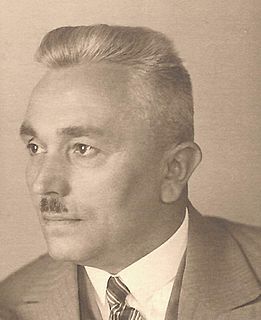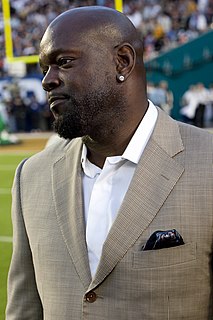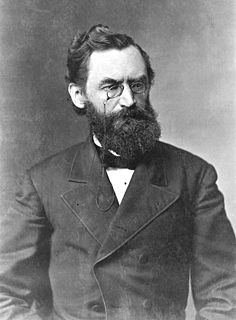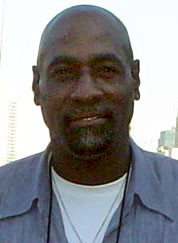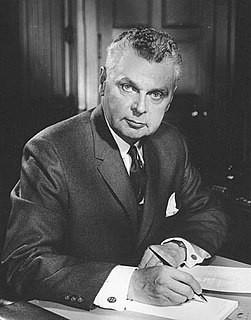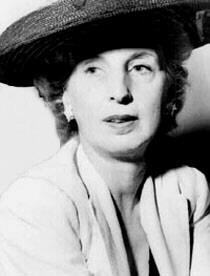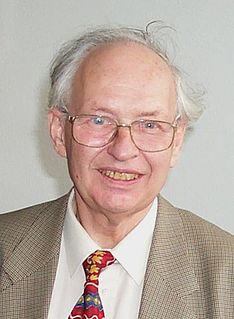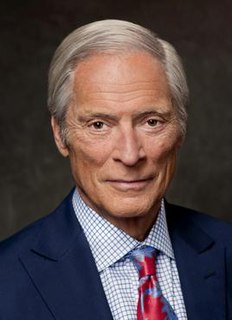Top 1200 German History Quotes & Sayings - Page 4
Explore popular German History quotes.
Last updated on November 25, 2024.
The craziest of all political systems, the unique leader state, has found its deserved end. History will note for eternity that the German people were not able on their own initiative to shake off the yoke of the National Socialists. The victory of the Americans, English, and Russians was a necessary occurrence to destroy the National Socialists' delusions and plans for world domination.
That Hegelian dialectics should provide a wonderful instrument for always being right, because they permit the interpretations of all defeats as the beginning of victory, is obvious. One of the most beautiful examples of this kind of sophistry occurred after 1933 when the German Communists for nearly two years refused to recognize that Hitler's victory had been a defeat for the German Communist Party.
We know only a single science, the science of history. History can be contemplated from two sides, it can be divided into the history of nature and the history of mankind. However, the two sides are not to be divided off; as long as men exist the history of nature and the history of men are mutually conditioned.
Black History is enjoying the life of our ancestors who paved the way for every African-American. No matter what color you are, the history of Blacks affected everyone; that's why we should cherish and respect Black history. Black history changed America and is continuing to change and shape our country. Black history is about everyone coming together to better themselves and America. Black history is being comfortable in your own skin no matter what color you are. Black history makes me proud of where I came from and where I am going in life.
The Germans have done wonderful work. Not long ago, a German battle group battalion conducted a very impressive counterinsurgency operation in a portion of Baghlan province. I think these are the first counterinsurgency operations conducted by any German element after World War II. And they did a very impressive job.
I feel history is more of a story than a lesson. I know this idea of presentism: this idea of constantly evoking the past to justify the present moment. A lot of people will tell you, "history is how we got here." And learning from the lessons of history. But that's imperfect. If you learn from history you can do things for all the wrong reasons.
There is no doubt that the absence of a second front in Europe considerably relieves the position of the German Army, nor can there be any doubt that the appearance of a second front on the Continent of Europe - and undoubtedly this will appear in the near future - will essentially relieve the position of our armies to the detriment of the German Army.
Music expresses feeling, that is to say, gives shape and habitation to feeling, not in space but in time. To the extent that music has a history that is more than a history of its formal evolution, our feelings must have a history too. Perhaps certain qualities of feeling that found expression in music can be recorded by being notated on paper, have become so remote that we can no longer inhabit them as feelings, can get a grasp of them only after long training in the history and philosophy of music, the philosophical history of music, the history of music as a history of the feeling soul.
London' is a gallery of sensation of impressions. It is a history of London in a thematic rather than a chronological sense with chapters of the history of smells, the history of silence, and the history of light. I have described the book as a labyrinth, and in that sense in complements my description of London itself.
As Fuehrer of the German people and Chancellor of the Reich, I can thank God at this moment that he has so wonderfully blessed us in our hard struggle for what is our right, and beg Him that we and all other nations may find the right way, so that not only the German people but all Europe may once more be granted the blessing of peace.
I am opposing it with an idea of the history of philosophy as a history of philosophers, that is, a history of mortal, fragile and limited creatures like you and I. I am against the idea of clean, clearly distinct epochs in the history of philosophy or indeed in anything else. I think that history is always messy, contingent, plural and material. I am against the constant revenge of idealism in how we think about history.
Frankly, I do not like the idea of conversations to define the term "unconditional surrender."The German people can have dinned into their ears what I said in my Christmas Eve speech--in effect, that we have no thought of destroying the German people and that we want them to live through the generations like other European peoples on condition, of course, that they get rid of their present philosophy of conquest.
There's a lot we should be able to learn from history. And yet history proves that we never do. In fact, the main lesson of history is that we never learn the lessons of history. This makes us look so stupid that few people care to read it. They'd rather not be reminded. Any good history book is mainly just a long list of mistakes, complete with names and dates. It's very embarrassing.
If there is a Greek exit from the Eurozone, I think the German elite will be quite pleased that they can then use that to restructure the Eurozone and make it a zone where only strong countries are allowed in. There would then be two tiers within the European Union, which is in fact already happening. But you cannot simply get rid of German control by raising the specter of the Third Reich. That's ahistorical.
History is my passion. So I write what I love to read. I find that if I combine history with a strong, sensual romance, it is like a one-two punch. The reader doesn't want the history without the romance, and of course the heavier the history, the more it has to be leavened with a sensual, all-consuming love story.
When we strengthen our relations with the Gulf states, when we cooperate with the Arabs, everybody asks if we are looking for a new geopolitical place. But in the Middle East and the Gulf, you can find German, French and British goods everywhere. German relations to these states are very good, as are English and French relations. Does this make them Arab-oriented?
'London' is a gallery of sensation of impressions. It is a history of London in a thematic rather than a chronological sense with chapters of the history of smells, the history of silence, and the history of light. I have described the book as a labyrinth, and in that sense in complements my description of London itself.
By an application of the theory of relativity to the taste of readers, today in Germany I am called a German man of science, and in England I am represented as a Swiss Jew. If I come to be represented as a bête noire, the descriptions will be reversed, and I shall become a Swiss Jew for the Germans and a German man of science for the English!
We once discussed which were the cleanest troops in the trenches, taken by nationalities. We agreed on a descending-order like this: English and German Protestants; Northern Irish, Welsh and Canadians; Irish and German Catholics; Scots; Mohammedan Indians; Algerians; Portugese; Belgians; French. We put the Belgians and French there for spite; they could not have been dirtier than the Algerians and the Portugese.
It is one of history's most mocking ironies that the German customs union, which set out to dominate Europe and conquer Britain in the form of Bismarckian or Hitlerian military force, has at last vanquished the victor by drawing Britain into a Zollverein which comprises Western Europe and aspires to comprise the Mediterranean as well. If the ghosts of the Hohenzollerns come back to haunt this planet, they must find a lot to laugh at.
I have always been in favor of a healthy Americanization, but that does not mean a complete disavowal of our German heritage. It means that our character should take on the best of that which is American, and combine it with the best of that which is German. By doing this, we can best serve the American people and their civilization.
I speak in the name of the entire German people when I assure the world that we all share the honest wish to eliminate the enmity that brings far more costs than any possible benefits. It would be a wonderful thing for all of humanity if both peoples would renounce force against each other forever. The German people are ready to make such a pledge.
The film [the white Ribbon] does try to use German Fascism as an example, but not specifically Fascism... the results of German Fascism. It shows how people are prepared or indoctrinated for an ideology... people who are already in a state of repression who have been humiliated by society and who clasp at a straw that's offered to them. And how that's then developed into a form of indoctrination.
The settler makes history and is conscious of making it. And because he constantly refers to the history of his mother country, he clearly indicates that he himself is the extension of that mother country. Thus the history which he writes is not the history of the country which he plunders but the history of his own nation in regard to all that she skims off, all that she violates and starves.
I was born in Breslau on October 5th, 1930. At that time, Breslau, now called Wroclaw, belonged to Germany, and only German was spoken there. After the Second World War, Breslau became Polish, and the original German population was almost completely replaced by a Polish one. I have never visited Wroclaw after the war.
I am a bohemian person. I don't speak German, and I live in a foreign country where all the signs are in German. I did that deliberately. I'm like a ghost. Look at how much media and advertising you're subjected to, this mindless chatter of advertising. I just block it out so effortlessly because it's all a foreign language to me. It's really a good thing for my head, living in Berlin.
The biggest issue for me has been the language because I speak so much German now. I've had to focus on my English and find more words to describe what I want to say and also soften my tone. It was quite stiff from 20 years of speaking German, so when I started speaking more English, oh my god, my tongue was like: 'Argh'!
(Heinrich von) Kleist would not be a Prussian if his first thought would not have been orderlinessand he would not be a German if he had not placed all his hopes of developing this inner orderliness into education. Education is the secret of life for him as for every German: studying, learning a lot from books, sitting in lectures, keeping notebooks, listening intently to professors.
Few tears will be shed over the demise of the East German army, but what about East Germany’s eighty symphony orchestras, bound to lose some subsidies? Or the whole East German system, which covered everyone in a security blanket from day care to health care, from housing to education? Some people are beginning to express, if ever so slightly, nostalgia for that Berlin Wall.


